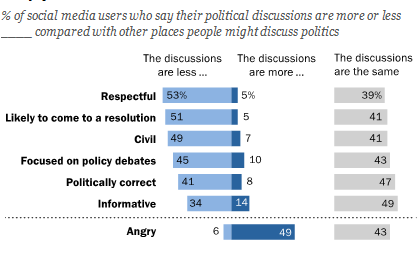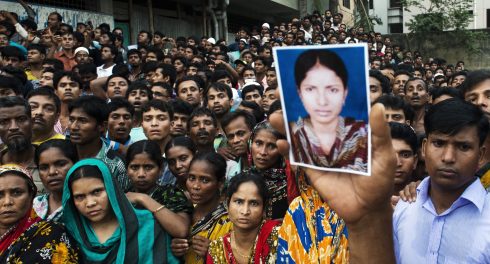Highlights
- Press repressed
- Data boosting worker rights
- Havens rarely home
- Lightening up lending
- Climate rumblings
- Funder accountability reimagined
- TAI Spotlight: Challenging ethnic profiling in Europe – A guide for campaigners and organizers
Press repressed
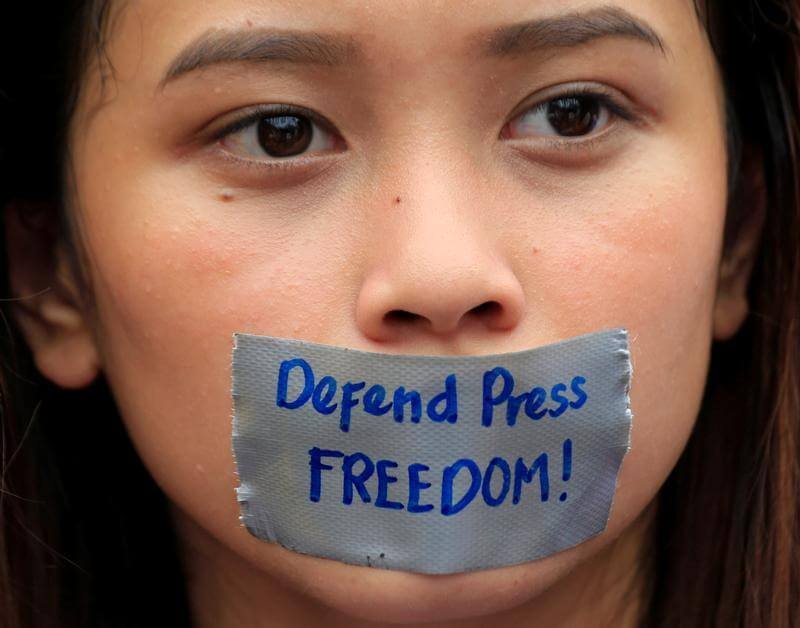
The theme for this past week’s World Press Freedom Day was “Information as a Public Good,” calling attention to the role of free and professional journalists in producing and disseminating reliable information while tackling misinformation. A role proven even more vital amid a pandemic. No surprise UNDP argues that a healthy news media is critical to achieving the vision of peaceful, just, and inclusive societies.
The Organized Crime and Corruption Reporting Project claim we are entering a ‘golden age’ of investigative reporting, where cross-border collaboration and phenomenal tools are being utilized by reporters and giving corrupt governments “something to fear.”
Yet, the bleak counterpoint is that effective journalism continues to provoke a fierce reaction. Reporters Without Borders find that journalists were completely or partly locked from doing their work in 73% of the 180 countries they monitor.
What does deteriorating press freedom look like? The International Consortium of Investigative Journalists document rising attacks, intimidation, government pressure, restrictions, lawsuits and penalties. The latest annual Reporters Committee Press Freedom report claims that police were responsible for the vast majority of attacks on journalists.
Belarus was found to be Europe’s most dangerous country for journalists; those covering the coup in Myanmar are now on the run from the military junta; Rwandan journalists are often found missing or dead in mysterious circumstances, while journalists and media houses across East and Southern Africa are confronting a “dark period”.
One brighter spot is Namibia – ranked best among African countries and 24th among the 180 nations worldwide surveyed – who joined UNESCO in hosting a World Press Freedom Day conference where media stakeholders called for urgent measures to counter the threats that are weakening independent and local news media around the world. One worrying consequence is creeping news deserts where journalists are unable to get accurate information out to the public.
Data boosting worker rights
From news deserts to data deserts. The 2021 World Development Report shows despite internet coverage increase, a clear usage gap persists in poor developing countries. Vivien Foster, Niccolò Comini, and Sharada Srinivasan discuss how improved data infrastructure policy can help to level the playing field and bring more into the modern data economy.
One example of data empowerment? Meaningful data on factories and working conditions is proving an essential component of worker-led change in the apparel sector. “But before workers can use data effectively, it must be easily accessible, usable, and reflective of their needs and experiences” argue the Laudes Foundation and its partners – Solidar Suisse in Cambodia, Solidarity Center in Bangladesh, and Care in Indonesia, as well as local trade union partners representing over 110,000 workers across the three countries.
Havens rarely homes
Remember the leaked cache of internal files and emails from the Cayman National Bank and Trust in 2019? Mathew Collins shares some key discoveries from the leaked data on how elites use offshore banking. He is able to unpack how politically connected elites use the offshore system in ways that are obscured from public statistics used to track offshore wealth. When deposits are assigned based on where the beneficial owner/beneficiary of the account is based, the number of deposits actually owned in tax havens falls by about a third.
To reduce the potential for such irregularities in the future, FACT coalition offers a 157-page blueprint to the Biden Administration for implementing the Corporate Transparency Act.
Last week we mentioned that South African President Ramaphosa testified to ANC “looting” of the state. This week more signs that he is winning a party power struggle and in part by playing the long game of siding with accountability institutions.
Cecilie Wathne and Matthew C. Stephenson dig into ten oft-cited corruption statistics (e.g. bribes paid annually) and attempt to trace each back to its origin and to assess its credibility and reliability. Of the ten, none could be classified as credible, and only two came close to credibility. Six of the ten statistics are problematic, and the other four appear to be entirely unfounded. A wake-up call for what we quote and rely on in advocacy (and funder justifications for programming).
Poll results from the African Tax Administration Forums (ATAF) social media platforms show overwhelming support for improving the African tax system to raise revenues from the informal sector as part of efforts to build back better post-COVID. Meanwhile, concerns grow that the proposed global tax reforms being shepherded by the OECD will do little for developing nations.
Lighting up lending
Debt debates have been plagued by opacity. Authorities do not always comply with the highest standards of transparency when issuing their debt (hampering oversight, investor confidence and ultimately borrowing costs), so intriguing to see the World Bank’s new interactive heat map to track the transparency of domestic debt issuance in IDA countries. Read more on its development.
From debt deals to government contracting writ large. Romina Colman writes about how transparent procurement enabled real-time tracking of government tenders in Paraguay. Here is what the government got right and the gaps they need to fill to rebuild public trust.
Turning to aid, Publish What You Fund’s DFI Transparency Initiative has completed its fourth research workstream, identifying areas where consistency and coverage of reporting could be improved. Ahead of the research launch, Thomas Venon talks research findings with Gary Forster as they launch a new project to track funding for women’s economic empowerment.
Erin Jones ask whether the EU should continue to advocates for funding autocrats through aid programs, while Mikaela Gavas and Samuel Pleeck outline how the EU could use that aid budget to incentivize private investment in human capital.
Climate rumblings
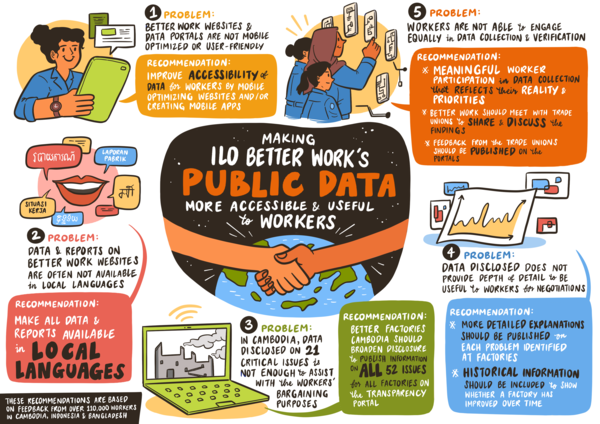
Image Credit: Vanessa Long | Sketchpoststudio for Laudes Foundation
Corruption Watch reports that despite decades of mining, the Bapo Community in South Africa still lives in extreme poverty due to conflicting legal and governance systems that has created opportunities for corruption. In contrast, some inspiration in Ukraine where EITI claims meaningful strides have been made in sector governance.
More fuel for the fire around the role of enablers as it’s revealed that JP Morgan Chase’s internal compliance team flagged “great risk” of corruption but the bank still went ahead with the last of 3 transfers to a former Nigerian oil minister totaling $875 million.
Patrick Heller and Greg Muttitt highlight four lessons for inclusion of national oil companies in the climate transition: no more business as usual, economic diversification is key, tunnel vision is deadly, and there must be political will to drive the energy transition.
Global Witness reveals how the EastMed gas pipeline stands to undermine EU action on climate crisis and increase military tensions in the region. Their report shows the controversial financial record of one of the key corporate players involved and urges backers to pull out.
Some sign that investor priorities are shifting as a record-setting 98% vote by General Electric’s shareholders for a climate proposal shows the power of investor engagement through Climate Action 100+. Should advocates trust that such investor engagement will produce real reform or continue to demand divestment? Paul Rissman thinks this is an important debate worth having even as civil society rights advocates and investors become unexpected ally this year.
Meantime, the National Democratic Institute is strengthening stakeholder capacity in Mali, Kosovo, and Georgia to adopt targeted policies that advance environmentally friendly outcomes. Shari Bryan and Lauren Van Metre examine how citizens and governments can work together to address the climate crisis.
Funder accountability reimagined
In a valuable read for all funders, Alina Rocha Menocal, Ed Laws, Jamie Pett, Emma Proud share lessons from three years of adaptive management in UK aid – calling for trust-building, brave leadership and a re-imagining of accountability, flexibility and experimentation across workplace cultures and policies.
Cynthia Steele urges philanthropy heads this week to take a longer-term view of the pandemic’s impact and balance intentionality with urgency. She advised funders to adopt transformative change by engaging the communities most impacted to recover and rebuild better. Similarly, Nabeeha Kazi Hutchins writes that flexible funding needs to remain a central element of philanthropy’s new normal as “less prescriptive grants are vital to creating more equitable partnerships and dismantling the colonialism and paternalism that is pervasive in the nonprofit sector, particularly in international development.”
Finally, Cassie Robinson adapts the 3 horizons model to lay out a vision of how we can get to the grantmaking we need for today’s and tomorrow’s challenges. Offer your comments here.
TPA Full Disclosure: Brendan Halloran on learning differently in time of crisis
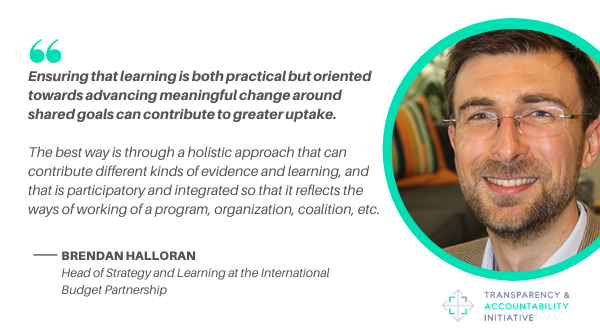
It’s great catching up with ex-TAIer, Brendan Halloran – governance learning expert. Brendan currently serves as the Head of Strategy and Learning (with a focus on fiscal governance) at the International Budget Partnership where he continues to work on the intersection of strategy and learning around governance issues. We spoke with Brendan on what learning looks like amid a pandemic, the obstacles of putting learning into action, and new adaptations to monitoring, evaluation, and learning.
TAI Spotlight: Challenging ethnic profiling in Europe: A guide for campaigners and organizers
Challenging ethnic profiling in Europe: A guide for campaigners and organizers | Open Society Foundations
Don’t miss this new guide published by the Open Society Justice Initiative on how to build creative campaigns and community power to finally put an end to ethnic profiling by police in Europe.
Evaluation of the journalism and media program | MacArthur Foundation
Read about the Foundation’s initial evaluation of their Journalism and Media Program to discover key lessons and the road ahead.
Chandler sessions on integrity and corruption at Oxford University | Chandler Foundation
Supported by the Chandler Foundation, the Chandler Sessions on Integrity and Corruption will convene a consistent group of 15 senior officials to develop and test a new generation of strategies to entrench public integrity.
New U.S. Director of Civic Engagement and Government | Ford Foundations
Javier Valdés has been appointed the U.S. director of the Foundation’s Civic Engagement and Government (CEG) program. Valdés will lead the strategy for the foundation’s work to strengthen representation, participation, and leadership in U.S. democracy, starting August 2021.
International Fund for Public Interest Media (IFPIM) | Luminate
The International Fund for Public Interest Media (IFPIM) gets a nod from the UN Secretary General, Antonio Guteress and Dele Olojede, Nigerian Journalist and first African-born winner of the Pulitzer Prize as Executive Director, Sheetal Vyas spoke with the UN News Centre about the pandemic’s effect on independent journalism and what’s at stake if we fail to prevent a media extinction event.
Job Listings
- Open Data Charter, Executive Director – June 7, 2021
- Job postings at Hewlett Foundation – Ongoing
- Job postings at MacArthur Foundation – Ongoing
- Job postings at Open Society Foundations – Ongoing
- Job postings at Luminate – Ongoing
- Job postings at Ford Foundation– Ongoing
- Job postings at FCDO – Ongoing
Calls/Opportunities
- Call for papers: National Tax Association conference – May 31, 2021
- West Africa Civil Society Institute (WACSI) call for papers and articles – Open year-round
- USAID’s Development Innovation Ventures (DIV) grant funding – Ongoing
- Call for research proposals Tax and civil society – No Deadline
- Free Digital Security Training – Ongoing
- Call for proposals: Informality, tax, and the state – Proposals accepted on a rolling basis
Calendar
- Philanthropy, healing, and the journey to decolonization and antiracist – May 11, 2021
- Weaving systemic alternatives from the Global South: A conversation with the Global Tapestry of Alternatives – May 11, 2021 (14:00 UTC)
- 2021 SSIR’s Frontiers of Social Innovation – May 11-13, 2021
- Virtual convening of Frontiers of Social Innovation: “People, Power, Resources: Enacting an Equitable Future” – May 11-13, 2021
- Purpose-driven board leadership: Reconceiving foundation governance – May 13, 2021 (2:00 pm – 3:15 pm EDT)
- Open Gov week (Virtual) – May 17-21, 2021
- Remaking the economy: Core elements of system change – May 20, 2021 (2:00 pm EDT)
- Open Ownership webinars on Beneficial ownership transparency in Africa – May 20-21, 2021
- Empowering communities using geospatial technology – May 25, 2021 (10:00 EST)
- ITAD at UKES 2021: Evaluation and evaluative thinking –May 25-27, 2021
- Lie machines: How disinformation threatens democracy and how to save it –June 10, 2020 (11:00 am – 12:00 pm)
- Global Investigative Journalism conference – November 3-5, 2021
- National Tax Association conference – November 18-20, 2021

